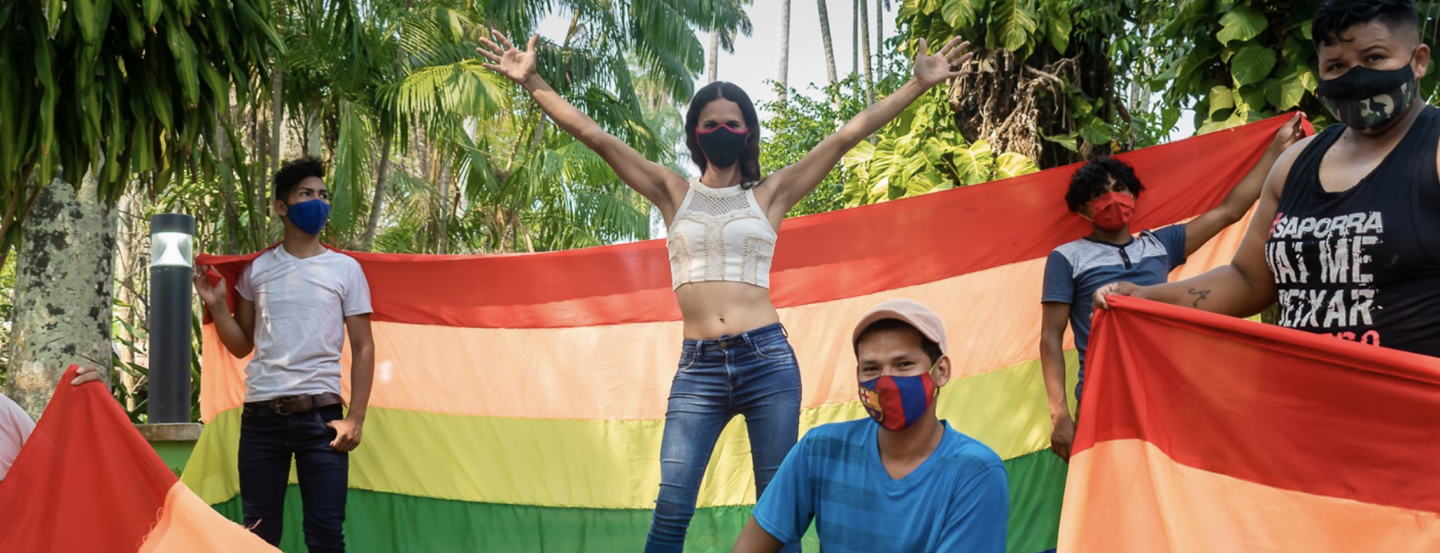The Alta Voz project, ran by EUNIC Global in cooperation with the EU Delegation in Bolivia, promotes gendery equality and respect for sexual diversity as a human right. Storyteller Mily Ponce shares a chronicle of her visit.
To travel from Buenos Aires, Argentina, to the city of La Paz, Bolivia, is always an adventure. The immense Andeschain seems close. Mount Illimani hypnotizes. For the indigenous Aymara (the majority of people in La Paz) the Illimani is the protector of the city. The neighborhoods descend (or rise) along the hills in an explosion of colours. The clean air 4,095 metres up makes my heart beat a little faster. The aroma of fruits and spices surround me, along wih the conversations of the gentle people from La Paz. Everything and everyone welcomes me.
Stories, fables, legends and poetry connect me with an ancient exercise that we have carried out since the beginning of our human species; transmitting the words, and in them, our culture and way of life. To capture experiences and to share them on my return home is
part of my profession as a storyteller. Telling and hearing stories allows me to connect and talk about love, respect, equality and diversity, which is why I was in Bolivia, to find out about gender equality promotion in Bolivia through culture and the arts.
Raising the flag of sexual diversity and gender equality is a revolutionaryact. Doing this through artistic projects is a creative, firm, beautiful, and loving approach.
The Alta Voz Project promotes gender equality and respect for sexual diversity as a human right, managing and financing artistic activist projects. I was invited to its National Meeting in February 2019 as a guest specialist and presented a lecture alongside Lillith Border, cultural manager and artist from Colombia, and Andrée-Anne Coté, Canadian journalist and recreologist. This allowed me to share my experience as a storyteller and activist for gender equality and the right to identity. The National Meeting brought together 45 representatives from the nine capital cities of Bolivia for two days of intense exchange of ideas, experiences and knowledge. It was an environment of commitment and seriousness, valued by the attendees as an opportunity to bind projects, make contacts, hear new perspectives, make their causes visible and obtain financial support.
Some of the important issues raised were the need to create social and legal frameworks that guarantee members of the LGBTQ+ community attention and recognition, as well as decent jobs. The possibility of carrying out commercial operations; the right to get married; and receiving respectful treatment in the media and in society in general. In a country where indigenous roots nourished by the Andean worldview coexist with western evangelization, cultural expressions are kept in a careful and sustained balance by conservative beliefs. Raising the flag of sexual diversity and gender equality is a revolutionary act. Doing this through artistic projects is a creative, firm, beautiful, and loving approach. The arts is a strong vehicle for making the issues of the LGBTQ+ population visible through cinema, staging plays, radio programmes, painting murals, poetic actions and the recovery of historical files linked to the birth and development of the LGBTQ+ movement in Bolivia.
Next steps in the design of regional artistic and cultural actions are new evaluations and more specific work to articulate and specify their planning.
This visit was a trip within a trip for me. It reinforced my view on the relevance of art as a vehicle for cultural transformation, social change and support for the LGBTQ+ equal rights agenda. It took me on a regional tour of a multicultural and plurinational land, enriched by the conjunction of nations in a single country, nurtured by history, traditions and customs that I took back to home to tell.

